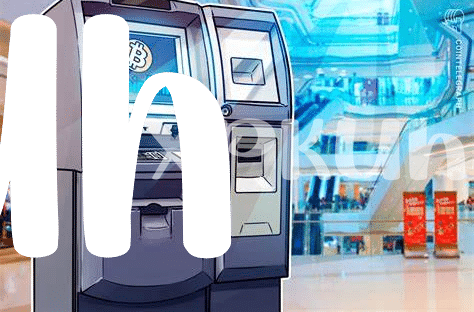Understanding Compliance Requirements for Bitcoin Atms 📋

Navigating the world of Bitcoin ATMs can be complex, especially when it comes to understanding the compliance requirements. From ensuring adherence to regulatory guidelines to staying updated on policy changes, operators must navigate a multifaceted landscape to operate within the legal framework. Delving into the specifics of compliance can shed light on the necessary steps and procedures needed to ensure smooth operations while upholding the integrity of the system. By staying informed and proactive, operators can streamline their compliance efforts and build a strong foundation for their Bitcoin ATM business.
Importance of Kyc and Aml Regulations 🛡️
KYC and AML regulations form the backbone of ensuring trust and credibility in the realm of Bitcoin ATMs. By verifying user identities and monitoring transactions, these protocols play a crucial role in mitigating illicit activities while promoting a secure and transparent ecosystem. The implementation of robust KYC and AML measures not only bolsters regulatory compliance but also builds a foundation of legitimacy for operators and users alike. Embracing these safeguards is paramount to fostering a responsible and sustainable Bitcoin ATM network.
Security Measures to Safeguard Transactions 🔒

Bitcoin ATMs are transforming the way people interact with digital currencies, offering convenience and accessibility. When it comes to Security Measures to Safeguard Transactions, robust encryption protocols and multi-factor authentication mechanisms play a crucial role in ensuring the integrity of transactions. Implementing secure hardware and regularly updating software are essential steps to thwart potential cyber threats. Additionally, conducting regular security audits and monitoring transaction activity can help in detecting any suspicious behavior promptly. By prioritizing security measures, Bitcoin ATM operators can instill confidence among users and foster trust in the evolving landscape of digital transactions.
Licensing and Legal Considerations for Operators ⚖️

Bitcoin ATMs have garnered increased attention globally, leading operators to navigate a complex web of licensing and legal considerations. Ensuring compliance with regulatory frameworks is imperative for operators looking to establish and sustain their ATM networks. From obtaining the necessary licenses to understanding evolving legal landscapes, operators must remain vigilant to mitigate potential risks and ensure the legitimacy of their operations. By staying abreast of legal requirements and proactively addressing any challenges, operators can navigate the intricate regulatory environment surrounding Bitcoin ATMs.
For insights into the future outlook of Bitcoin ATMs globally, including the legality of such machines in Burkina Faso, visit are bitcoin ATMs legal in Burkina Faso?.
Challenges in Meeting Regulatory Standards 🤔
Meeting regulatory standards can pose significant challenges for Bitcoin ATM operators. Ensuring full compliance requires navigating a complex web of laws and regulations that vary by jurisdiction. From KYC and AML requirements to data protection measures, operators must adopt robust systems to meet these standards. Additionally, staying updated with evolving regulations and adapting quickly to changes is crucial in this ever-changing landscape. Despite the challenges, proactive compliance can ultimately enhance trust among users and promote the long-term sustainability of Bitcoin ATM operations.
Future Outlook: Evolving Compliance Landscape 🚀

The future of compliance for Bitcoin ATMs holds exciting possibilities as regulations continue to adapt to the evolving digital landscape. Industry experts anticipate a trend towards more streamlined and efficient compliance processes, leveraging advanced technologies to enhance security and transparency. As regulatory bodies fine-tune their approaches to address emerging issues, operators of Bitcoin ATMs can expect a more cohesive and standardized framework that fosters compliance while supporting innovation and growth in the cryptocurrency space. Embracing these changes will be crucial for staying ahead in a dynamic industry landscape.
Are Bitcoin ATMs legal in Canada?
